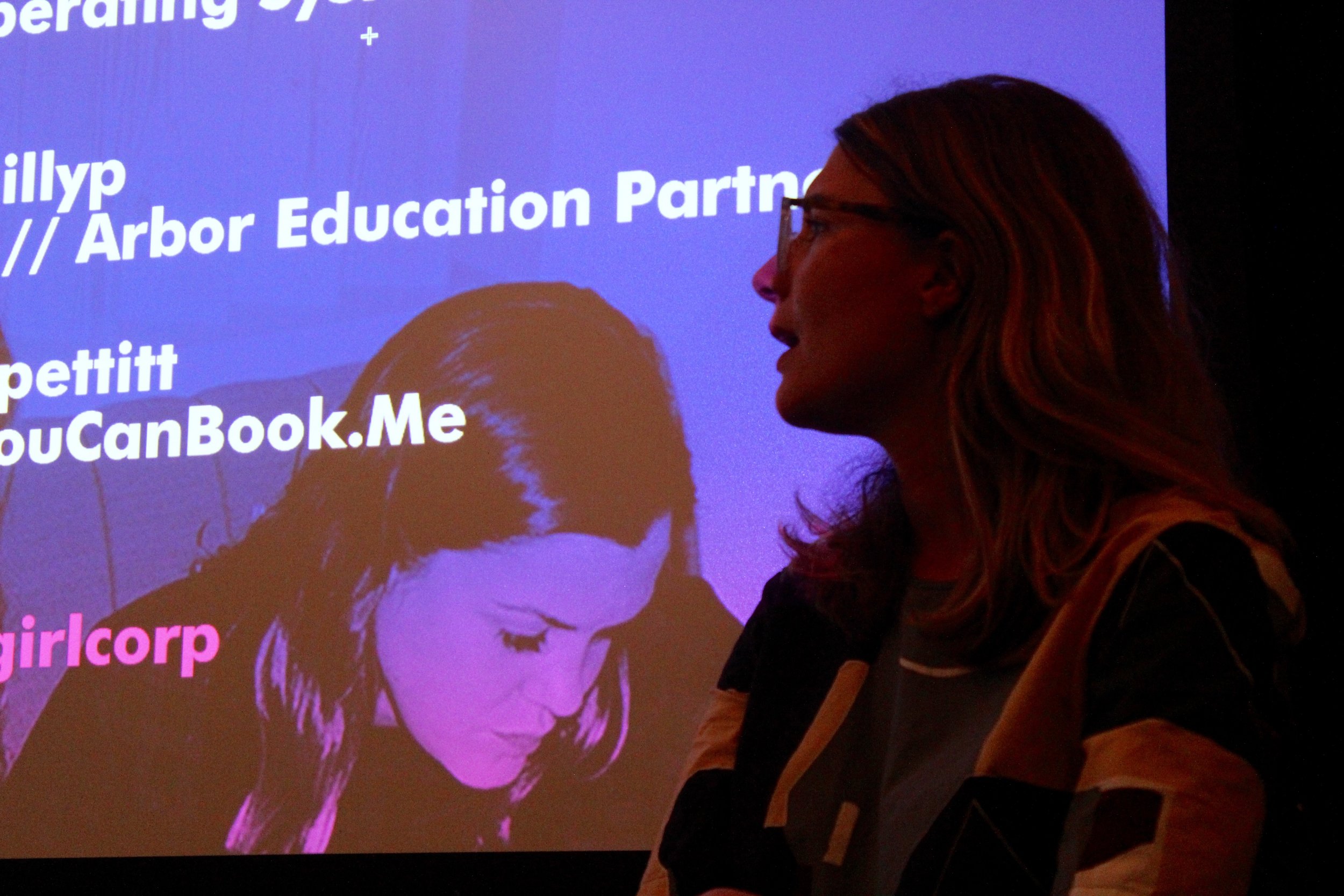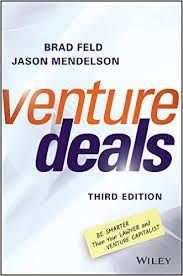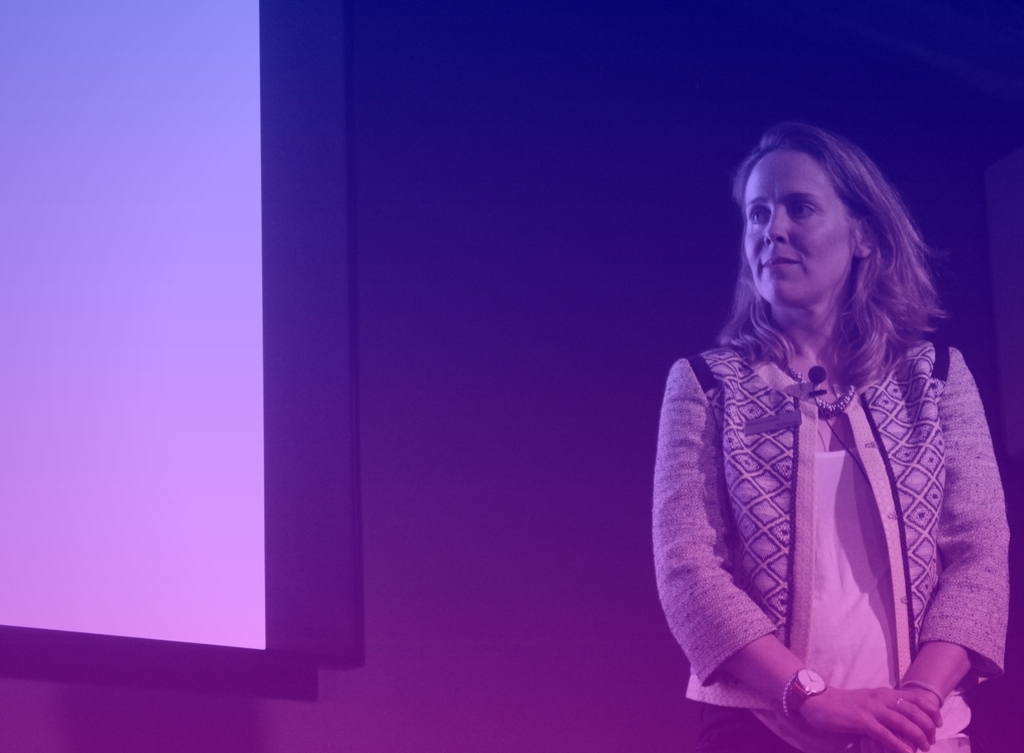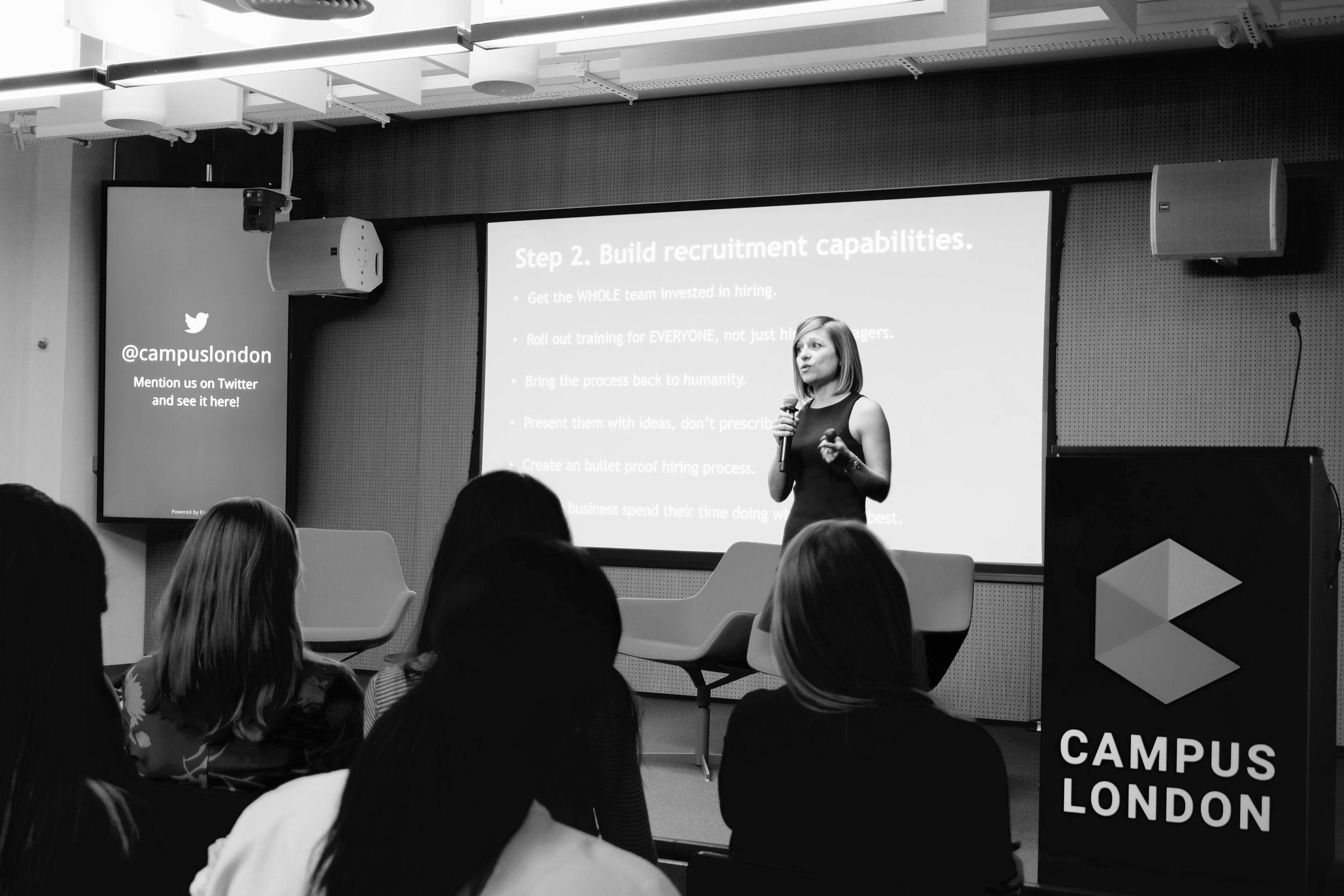Creating a Company Operating System

Running a business ain't all fun and games babes! You may have your vision intact but do you understand all the components to make your business run? When you think about founding, growing and promoting your company, there’s a long list of not so glamorous things to do. For FGC's 6th event of the year, we talk creating company operating systems!
the panel
Phillippa De’Ath, Chief Operating Officer of Arbor Education Partners, a data platform for schools whose 70 staff support over 7,000 schools, and Co-Founder of Hackney New School, a pair of schools with an innovative curriculum focused on music.
Claire Pettitt, Head of Operations at the online scheduling software company YouCanBookMe, an online scheduling tool for customer bookings, where she handles all things relating to finance, HR, legal and general company structure/process.
Sharmadean Reid, Founder of WAH London and FutureGirlCorp, platforms that empower women through style (former) and business (latter).
THE BIG QUESTION
...What are operating systems, do I need a COO and where do I find one?
WHAT? A company operating system is the stuff that's pulling the strings in the background. It's about getting rid of all the hygiene factors to make sure you can really be successful at what you’re coming to work for. That could be looking at your recruitment process, your company culture, finance, data protection, legal documents, etc...
WHO? A chief operating officer is someone who will help the CEO with the daily operation of the company. They tend to be naturally risk averse, ex management, consultant types that enjoy organisational tasks but also believe in the company's vision and values. Basically, it's like a second marriage for your business.
Beware that not everyone is comfortable working in a startup environment - it's very fast paced and you’re juggling different things every week. Those that enjoy working with startups are those attracted to the freedom and autonomy that comes with such a role, don't enjoy being micro-managed and end up building a trusting relationship with the CEO. When looking for a COO, you want someone who will challenge you a bit. You don’t want someone who is going to agree with everything because you'll just end up mirroring one another. Test out the relationship by collaborating on an initial project e.g. an event or lookbook shoot. You can then see how you work with each other and how they bow under pressure.
{CHECK OUT THIS ARTICLE ON THE DIFFERENT TYPES OF COOS}
WHERE? Get chatting to people at networking events. Not everyone will want to go out and do something on their own. There might be someone who is good at the stuff you're not and vice versa. That’s the kind of person you’re looking for. Also, you can search for free volunteers on sites like Escape The City and Workingmums.
“Be aware of what you’re good at and what you’re not good at, then find the people that fit those jigsaw puzzle pieces. ” - Claire Pettitt, YouCanBookMe.
THE STUFF YOU NEED TO KNOW
...Whether hiring people, collecting data or creating a company culture, DOCUMENT EVERYTHING!
PEOPLE! You should be documenting everything about everyone that works for you e.g. when and why they joined, how you interviewed them, that you checked their visa status, etc... From the beginning, do more than you think you should be doing in terms of keeping a full record of all your staff.
DATA PROTECTION! If you are taking people’s information (as you should be), you need to know what the general data protection is in the year 2018 because you’ll be liable for the different ways in which you are using different peoples' records.
POLICIES! What's your plan for when someone joins or leaves your company? Do you have an induction process? Have you drafted out contracts and a handbook? Do you have a plan for pension schemes, injury or pregnancy? Is your company insured? If you can't answer these questions, get on it asap!
“You [will] thank God that you actually documented stuff...Things that seem really tiny become really big, in terms of how people are treated." - Phillippa De'Ath, Harbour Education
PERFORMANCE REVIEWS! Do something, rather than nothing! It keeps people motivated and celebrates successes. It can be a really simple page of A4 that asks each employee what they are proud of in the last quarter, what didn’t go so well, what they learned from it and what their development needs are for the next quarter. Find a simple template off the internet or use a Typeform. By creating a documentation culture from the start, you can measure your success as you grow.
METRICS! Keep a metrics sheet of 2 or 3 items that you’ll be tracking every week e.g. revenue, customer net promoter score (how likely would you recommend to friend), employee net promoter score. Think about information you need for your company and why you want to know this stuff. If it's just about putting it into a graph, don’t bother! If you’re tracking it for some action, that's better!
“Very early on in WAH, I remember sitting for 2 months and writing the Employee Handbook...and it’s literally saved my ass for the last 6 years.” - Sharmadean Reid, WAH London
THE CULTURE CLUB
...Creating company values & establishing diversity within your team!
VALUES! Create a maximum of 6 values and use them to screen people, checking whether they fit in with the values of your company before looking at their experience or qualifications. This stops you hiring people that, although brilliant at their jobs, struggle to get on with the rest of the team. Measure your values against every performance review. Have your staff been working towards and fulfilling them in the last quarter? If not, you have a quantified, legal record that shows them to be underperforming.
WHAT ABOUT FREELANCERS?! Think about the extent that they’ll be working independently versus working cross-fucntionally with other team members. If the latter, share values with them. If you end up using freelancers that don’t gel well with your other staff, that will disrupt the flow of your team and overall productivity. If you’re hiring someone who has a specific skill to do a specific piece of work for a short amount of time, then you don't need to hand them your 10 Commandments. Whether engaging with freelancers or permanent staff, keep reiterating your values in a subconscious way and they’ll get the picture.
DIVERSITY! Don't just hire people that are like you. Your company values will ensure that your team have a common purpose but make sure everyone is bringing in different skills and perspectives.
TOP-DOWN CULTURE! The CEO can also depict company culture. Generally, if they are doing something, everyone else tends to follow. It’s important to monitor your behaviour within your team because it will eventually impact how the rest of your team behaves too. e.g. respecting boundaries.
“Articulate your values early about what’s really important to you in the kind of people that you hire and the kind of ways that they work." - Claire Pettitt, YouCanBookMe
The Finance Dept.
...What are the simplest things you can do to create operating systems for the financial parts of your company?
MONITOR CASHFLOW! This is sooooo important! Always assume you’re going to bring in less money than you think and spend more money than you think. The minute that you spy a potential problem where you’re going to run out of money in a few months, drop everything else and get yourself a loan.
TRY ENTERPRISE SOFTWARE! If everything is rocketing and you haven’t got time to think about how to do the accounting side of things, it’s worth spending some money on enterprise software. Getting a programme like Xero from the get go will help define processes for you. Receipts Bank is good way of tracking your receipts as well.
“If you don’t have enough money in the bank to pay your staff, you are bankrupt. Your company doesn’t exist anymore. That’s how quickly it happens.” - Claire Pettitt, YouCanBookMe
FIND AN ACCOUNTANT! Getting enterprise software doesn't replace an accountant. You will still need an accountant to file your accounts but it just minimises the amount of work they have to do, in terms of organising your receipts and financing. It's important to hire a really good accountant, especially if finance isn't something that you’re confident doing yourself. You can outsource this or bring someone into your team. However, be cautious when outsourcing because an external accountant only knows what you tell them. They don’t know what’s going on day to day in your business; an internal member of staff will still have to do some basic monitoring of cashflow.
SCHEDULE REVIEWS! When you're at the beginning stages of your start up company, you should be having a weekly check on all your finances. Once you grow and start becoming cash positive, you can move it to once a month. Enlist the help of an employee to keep you focused and stop it feeling overwhelming or boring.
“As a founder you should have an understanding of every single thing financially in your business...I take a ruler and look through every line on the bank account, what was spent and what wasn’t.” - Sharmadean Reid, WAH London
THE Q&AS
1. What are your most important housekeeping tasks for every week?
“I unblock my team so they can get on with their day” - Phillippa De'Ath, Harbour Education.
A COO's job is to unblock anything that is stopping other people doing their job. Don't use internal emails to communicate with staff. Instead use an internal documentation tool to document what you’re doing all the time e.g. SLACK or Facebook Workplace. It’s very open, means you’re not having to repeat yourself and keeps a historical record of everything.
When it comes to looking at to do lists, apps such as Gera (very tech) and Asona are great at helping to break your work down into manageable chunks. Be real about the maximum number of things you can actually get done from your list because it can very quickly get overwhelming. These apps force you to focus on four things a day, which is much more productive than trying to do a bit of everything at once.
2. Any tools or thoughts on the future of work, in terms of supporting people to work together outside the formal construct of an organisation?
If want to do lots of different things, there are lots of different ways you can do that.” - Phillippa De'Ath, Harbour Education.
Nowadays, people seem to enjoy having more of a "Cocktail Career". Mix up you what you like doing as work and hobbies. Some can be formal, while some can be experimental. Place as much importance on your hobbies as well as your full time job because you will learn from those side projects too.
3. How do you create a company culture if you’re working remotely?
“Get togethers in person are still essential.” - Claire Pettitt, YouCanBookMe.
There’s no perfect way of doing it. Try and hire people who are good at writing because most of your hanging out is done on a chat room. You need people who articulate and show their personality in their writing. However, be aware that things can get misunderstood on chat so it’s still important to meet up once in a while and “hang out”. The CEO needs to be participating too, in order to further establish that culture.
4. Is there a difference between a brand value and a company value?
Brand value is consumer facing and a company value might be something only your employees know.
5. What do you have to think about when hiring people from abroad?
This is complex. If you're in this position right now, please contact us to access more information.
6. Should you try operational work before starting your own business, in order to learn more?
If you don’t know what you want to do, ops is a great way of learning everything and testing out someone else’s idea. If you know what you want to do, don’t waste time working for another company. Find the right person to do those jobs for your company instead.
7. Can you switch from being a COO to being CEO?
Of course, it’s just about switching your mindset to thinking like a founder. Be very clear about your strategy and what you’re trying to achieve. Make 3 goals and be really strict about that.
8. Would you hire friends or family as a COO?
Be careful! This kind of working relationship tends to be tricky because the COO might have to challenge some of the ways in which the company runs. So this might be even harder in a very close relationship that exists outside of work as well. If you are going to do it, draw up a clear contract like you would do with anyone else.
9. How do you look for an accountant?
Try Xero Marketplace of Certified Accountants. Accountants can be quite rigid so do ask them for examples of where they have been flexible for a client that had bespoke needs or that was growing fast. Do the same with the bank you choose. Barclays are really good. If you’re in tech, Silicon Valley Bank are great, especially if you’re looking to go international.
10. What are the basics of legal and how do you understand them?
“A lot of my job is working out what I should be googling and what I should be paying an expert to do” - Claire Pettitt, YouCanBookMe.
If you’re not confident doing it, outsource it. Spend money on getting a good lawyer and accountant. Trust us, it's worth it in the long run!















